Corn
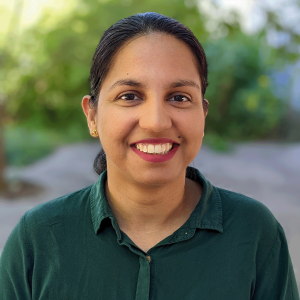
Sep. 22, 2022
Gurpreet Kaur
Kaur is based at the Northern Missouri Research, Extension, and Education Center, Novelty MO. Her responsibilities include conducting soil science research at the Northern Missouri Research, Extension, and Education Center farms including Lee Greenley Jr. Memorial farm, Cornett Research Farm, and Thompson Research Farm. Her research is focused on soil fertility and nutrient management to increase crop productivity, profitability, and nutrient use efficiency, while improving environmental quality. She is also interested in the impact of management practices such as tillage, crop rotations, cover crops, nutrient and water management on soil properties and agronomics. Specific research interests include evaluation of fertilizer…
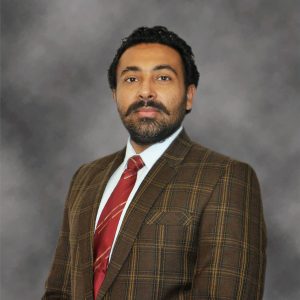
May 31, 2022
Gurbir Singh
Singh’s faculty appointment includes research and Extension responsibilities in applied soil science-agroecology and landscape position management. He serves as State Extension Specialist for landscape position management. His research is focused on spatial/temporal modeling of nutrient dynamics in the plant, soil, water, and gaseous phases ranging from plot scale to watershed scale. His program includes developing prescription models for landscape position-based research. His research also involves understanding the effects of management practices such as cover crops, tillage, and topography on crop yields, soil and water quality in row crop production systems. At the Northern Missouri Research, Extension and Education Center, his…

Jan. 22, 2021
Ben Brown
Educational background M.S., Agricultural and Applied Economics, University of Missouri, 2017 B.S., Agricultural Economics with Agronomy Specialty, Kansas State University, 2015…

June 5, 2020
Morgan P. Davis
Davis’ research is centered around soil biogeochemistry in the context of ecological sustainability. The objective of his research is investigating nutrient and energy cycles in both managed and natural ecosystems. This work provides insights for improving sustainability and contributes to foundational biogeochemistry knowledge. He is particularly interested in nitrogen and carbon transformations in forested and agronomic ecosystems. Specific research interests include the following: soil greenhouse gas emissions, soil health, soil organic matter, cover crops, tillage management, nitrate leaching, microbial communities, denitrification, indirect nitrous oxide emissions, and riparian buffers. Educational background Ph.D., Iowa State University, 2018 M.S., University of Illinois Urbana-Champaign,…

May 18, 2020
David Braun
Carbohydrate partitioning is the process whereby photoassimilates are distributed from their site of synthesis in leaves to the rest of the plant. Control of carbohydrate partitioning is crucial for plant growth and development, and underlies all aspects of crop yield, including cellulose deposition in cell walls and sucrose accumulation in storage organs, such as the stems of sugarcane or sweet sorghum. For most plants, fixed carbon, in the form of sucrose, is loaded into the phloem and transported from leaves to non-photosynthetic tissues, such as stems, roots, and fruits. This process is well characterized at the physiological, biochemical, and anatomical…
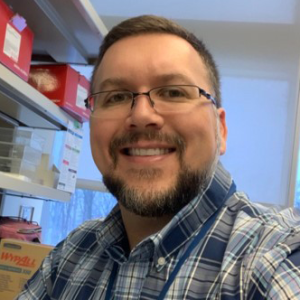
Jan. 14, 2020
Tom Slewinski
Tom Slewinski currently leads the Crop Efficiency and Disease Discovery Lead in the Biotechnology division of Bayer Crop Science in Chesterfield, MO. Prior to joining industry, Tom completed his post-doctoral training at Cornell University where he worked on the underlying genetics, physiology and evolution of phloem loading in trees and kranz-type C4 photosynthesis in maize. Educational background Ph.D., Plant Biology, Pennsylvania State University. B.S., Biochemistry and Molecular Biology, Pennsylvania State University…

Sep. 7, 2019
Scott C. Peck
Educational background Ph.D., Michigan State University Courses taught Biochemistry 2480: Introduction to Macromolecular Structure and Function Biochemistry 8200: Principles and Research Practices in Biochemistry…
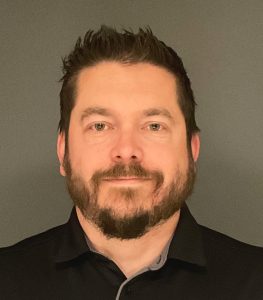
Sep. 17, 2018
Derek Brake
Educational background Ph.D. Ruminant Nutrition, Kansas State University M.S. Animal Science (Ruminant Nutrition), Kansas State University Courses taught AnSci 4332/7332: Ruminant Nutrition AnSci 4975/4975W/7975: Beef Production…

Sep. 9, 2018
Mandy Bish
Bish’s main research focus is the management of current and emerging pathogens to corn and soybean. Information generated from the research is applied to her extension programming efforts. She utilizes programs already in place, such as the Mizzou On-Farm Strip Trial Program to compliment small plot research that evaluates the efficacy of disease management practices either alone or in combination. Bish also has an interest in exploring interactions among pathogens, disease management tactics, and the environment. This allows Bish to utilize her training in both basic and applied plant sciences. Improved understanding of these interactions and monitoring how interactions change over…
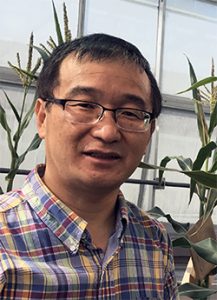
Aug. 21, 2018
Bing Yang
Bing’s group has used rice as a workhorse to develop genome editing technologies and demonstrate their promising potential as biotech tools for basic and applied research in rice and other crop plants. With the increasingly available sequences of many plant genomes, technologies for genome editing have become the most promising and popular tools for scientists to understand such complex genomes and precisely and quickly manipulate them for good. Genome editing technologies allow precise, targeted genomic changes. TALENs and CRISPR/Cas represent the state-of-the-art genome editing technologies and hold immense promise for defining the genetic and molecular basis for valuable traits, as…
- « Previous
- 1
- 2
- 3
- Next »